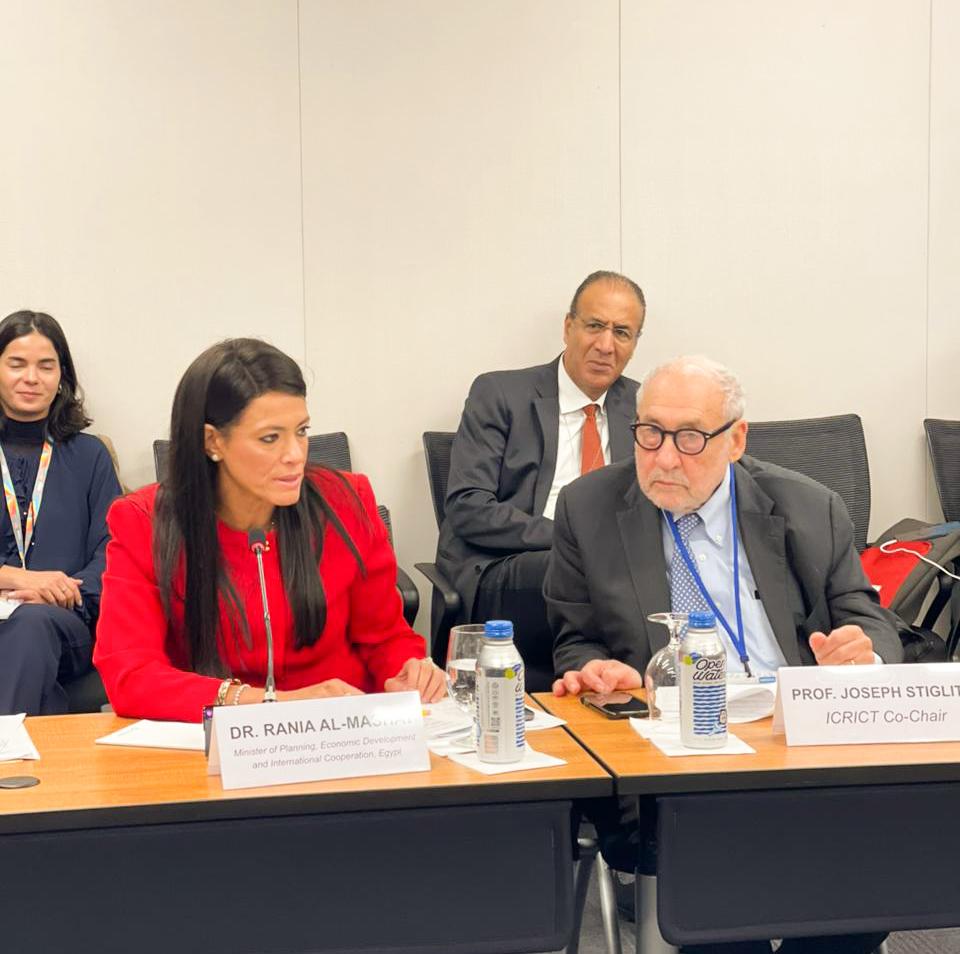H.E. Dr. Rania Al-Mashat: We are witnessing a global shift in the development finance system—from traditional tools to more innovative mechanisms
The donor–recipient model of development finance is no longer viable, and developing countries need more sustainable and equitable partnerships
Egypt has pioneering experiences in debt swaps and national platforms that create effective financing partnerships between development banks and international institutions
The NWFE country platform has become a model for reforming the global financial architecture by integrating financing tools with technical support to mobilize investments
H.E. Dr. Rania Al-Mashat, Minister of Planning, Economic Development, and International Cooperation, participated in a panel discussion titled “Rebalancing Global Tax Cooperation to Enhance Domestic Resource Mobilization: Opportunities and Challenges under the UN Convention,” organized by the Independent Commission for the Reform of International Corporate Taxation (ICRICT), with the participation of Nobel Laureate Economist Joseph Stiglitz. The session took place as part of the 2025 Annual Meetings of the International Monetary Fund and the World Bank in Washington, D.C.
During her remarks, H.E. Dr. Rania Al-Mashat stated that the world today is witnessing a constructive discussion about the development finance system in the post–traditional aid era, emphasizing the need to focus more on sustainability. She noted that the global financial architecture must increasingly support innovative financing mechanisms and interventions that stimulate private sector investment and promote multilateral partnerships.
H.E. Dr. Al-Mashat explained that while traditional development financing once formed the backbone of international development cooperation, it currently represents less than 10% of external resources available to developing countries, according to the OECD’s Development Cooperation Report 2024. At the same time, debt servicing costs have tripled since 2010, according to data from the International Monetary Fund.
She added that the main challenge today is how to finance sustainable development through more innovative financing mechanisms while global economic imbalances persist. The answer, she noted, lies in building a new structure for development finance based on mobilizing domestic resources, ensuring tax justice, promoting debt sustainability, and establishing innovative partnerships.
The Minister stated that Egypt launched its Integrated National Financing Framework (INFF)—the first national financing strategy for the Sustainable Development Goals (SDGs) in Egypt—which follows the global approach of the INFF. The framework provides an integrated national mechanism for mobilizing and aligning resources in line with the SDGs, identifying financing gaps, and improving resource allocation for priority sectors. The strategy focuses on mobilizing sustainable financing to bridge the financing gap and reduce financial risks, while promoting a transition from traditional financing tools to comprehensive financing strategies that advance sustainable development.
H.E. Dr. Al-Mashat emphasized that the NWFE Country platform (“Nexus of Water, Food and Energy”) represents a practical model for this concept, as it combines concessional financing and private investment to support climate projects through local and foreign investments, concessional loans, grants, and risk-mitigation instruments. She pointed out that the final communiqué of the Fourth International Conference on Financing for Development commended the NWFE platform as a model for reforming the global financial system.
She explained that, in the post–official development assistance context, development partnerships must be based on equality and mutual cooperation, rather than the traditional donor–recipient relationship. This, she said, requires a shift toward national platforms that unify different financing tools such as debt-for-development swaps, which transform financial obligations into investments in education and the environment; sustainability-linked bonds that reward performance rather than promises; and blended finance instruments that help reduce investment risks in strategic sectors.
H.E. Dr. Al-Mashat referred to Egypt’s experience in implementing debt swap programs with Germany and Italy, as well as its collaboration with the International Monetary Fund through the Resilience and Sustainability Facility (RSF), and partnerships with United Nations agencies within the INFF framework. These initiatives, she said, reflect that development financing today is built on coherence and accountability.
She concluded by affirming that the future of development cooperation will not be measured by the volume of aid, but by the credibility of systems and the fairness of the rules that govern them.
